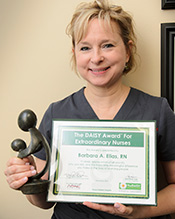 Barbara Elias, the ventricular assist device (VAD) coordinator for Texas Children’s Heart Center, was recently honored with the Daisy Award, a national award that recognizes clinical nurses for the extraordinary work they do for patients and families each and every day.
Barbara Elias, the ventricular assist device (VAD) coordinator for Texas Children’s Heart Center, was recently honored with the Daisy Award, a national award that recognizes clinical nurses for the extraordinary work they do for patients and families each and every day.
Elias was recommended for the award by the mother of a patient who said that for the past 16 months Elias has gone above and beyond for her and her daughter, showing them both “the utmost care and compassion.”
“No matter what time of the day or night, she is always just a phone call away,” the mother said. “Even after the numerous times we woke her in the middle of the night, Barb jumped into action and showed as much care for my daughter as I do as her parent.”
The mother said Elias always maintained a professional demeanor while giving her daughter and family emotional support.
“She is a great asset to the heart failure program,” she said. “I hope one day she will receive as many blessings as she has bestowed upon the countless patients and families she has touched through her kindness.”
Elias has been Texas Children’s since 2015, starting out in the adult VAD program before moving to pediatrics. In her job as the VAD coordinator Elias is the liaison and general resource for all VAD patients, families and caregivers, conducting a variety of tasks including obtaining insurance and prior authorization for all VAD implants, conducting preoperative assessments and evaluations, intraoperative pump preparation, postoperative rounds, assistance with daily interdisciplinary rounds, pump assessment, wound care and management, collaboration with teams for procedures on VAD- supported patients, daily management of all device patients including family updates, monitoring of anticoagulation and patient transport.
Elias also handles teaching patients and family members device therapy at discharge, and VAD education and training to various other audiences such as paramedics and school personnel. She also coordinates outpatient therapy in areas sometimes not associated with Texas Children’s when patients live in alternate locations and participates in VAD patient research.
“Barb is excellent at what she does and always puts our patients and families as ease,” said Congenital Heart Surgeon Dr. Iki Adachi. “She is a perfect fit for the Daisy Award.”
To learn more about the Daisy Award and/or to nominate someone for the recognition, click here.


 Cardiologists with Texas Children’s Adult Congenital Heart Disease Program recently received The American Board of Internal Medicine’s (ABIM) new Adult Congenital Heart Disease certification. The ABIM certification is designed to recognize the qualifications of physicians who are specialists in the care of a wide range of adult patients with congenital heart disease.
Cardiologists with Texas Children’s Adult Congenital Heart Disease Program recently received The American Board of Internal Medicine’s (ABIM) new Adult Congenital Heart Disease certification. The ABIM certification is designed to recognize the qualifications of physicians who are specialists in the care of a wide range of adult patients with congenital heart disease. Two-month-old Finley Sloan got a special visit from her interventional cardiologist Dr. Aimee Liou last week when she walked into her room on the 15th floor of the Heart Center carrying a tiny red knit hat.
Two-month-old Finley Sloan got a special visit from her interventional cardiologist Dr. Aimee Liou last week when she walked into her room on the 15th floor of the Heart Center carrying a tiny red knit hat.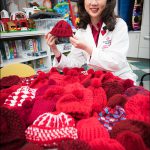


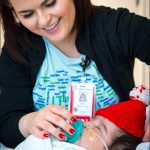
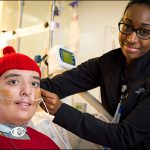
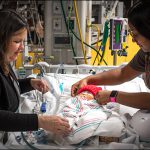




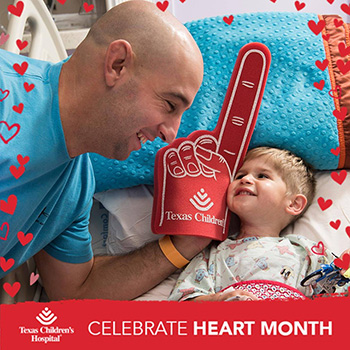 Just in time for Heart Awareness Month, Texas Children’s Hospital’s No. 1-ranked Heart Center by U.S. News & World Report launched its very own Facebook page!
Just in time for Heart Awareness Month, Texas Children’s Hospital’s No. 1-ranked Heart Center by U.S. News & World Report launched its very own Facebook page!
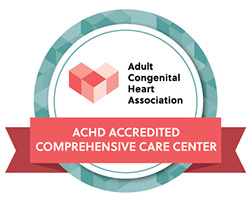 Texas Children’s Hospital is proud to announce its Adult Congenital Heart Disease Program recently earned Comprehensive Care Center accreditation from the Adult Congenital Heart Association (ACHA). Texas Children’s Adult Congenital Heart Disease Program is the first in Texas to receive this esteemed designation.
Texas Children’s Hospital is proud to announce its Adult Congenital Heart Disease Program recently earned Comprehensive Care Center accreditation from the Adult Congenital Heart Association (ACHA). Texas Children’s Adult Congenital Heart Disease Program is the first in Texas to receive this esteemed designation.